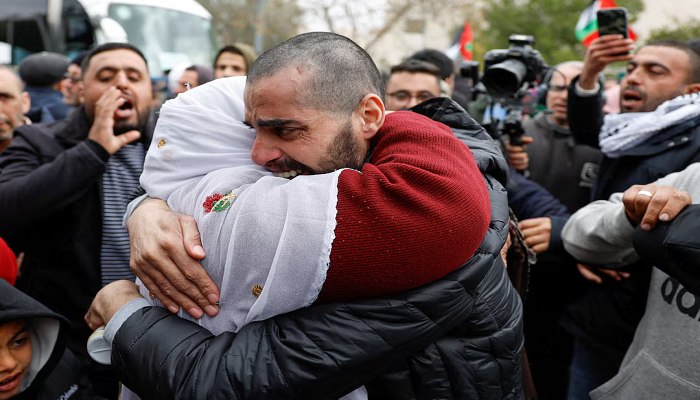Hamas has responded to international calls for a ceasefire by proposing to release hostages in exchange for the release of Palestinian prisoners.
The group emphasized that any agreement should lead to a permanent ceasefire, the withdrawal of Israeli forces from Gaza, and the continuous flow of humanitarian aid to the region. This proposal marks a critical moment in ongoing negotiations aimed at de-escalating the conflict.
Hamas said Saturday it has submitted its response to a ceasefire proposal presented by President Donald Trump’s Middle East envoy, Steve Witkoff, offering to release 10 living hostages and 18 bodies in exchange for Israel’s release of Palestinian prisoners.
EU Lifts Sanctions on Syria, Reviews Pact with Israel
The response marks the latest development in efforts to reach a ceasefire deal, which Hamas said Friday they were closely reviewing. The White House said the deal had already received Israel’s stamp of approval, though Israeli Prime Minister Benjamin Netanyahu‘s office did not respond to a request for comment.
Saturday’s statement affirms Hamas’ position that negotiations should aim for a permanent ceasefire, an Israeli withdrawal from Gaza, and the establishment of a sustained flow of humanitarian aid.
According to an outline of the proposal that Hamas shared earlier, the deal would include a 60-day pause in fighting marked by the release of hostages held in the Gaza Strip in exchange for Palestinians imprisoned and detained by Israel.

The agreement would see Hamas release 33 hostages, with Palestinian prisoners and detainees released at a ratio of 30 per captive, around 600 trucks of aid per day allowed into the Gaza Strip, and Palestinians in Gaza allowed to return to their homes in all areas of the enclave.
Under the outline shared by Hamas, the initial phases of the deal would be precursors to an eventual permanent cessation of hostilities once all its terms are implemented.
Meanwhile, aid groups have warned of a dire humanitarian situation in the enclave due to Israel’s offensive and 11-week-long blockade that barred the entry of food and medicine before it was lifted last week.
Freed Israeli-American Hostage Exits Gaza Amid Humanitarian Crisis, Israel says no ceasefire
Trump on Wednesday acknowledged the humanitarian crisis in Gaza, calling it a “nasty situation,” adding that “Oct. 7 was a very nasty day, the worst that I think I’ve ever seen.”
He told reporters the U.S. was getting food to Palestinian civilians, with a new system for aid distribution launched over the past week, led by the U.S. and Israel-backed Gaza Humanitarian Foundation.
GHF began operations this week days after Israel lifted its blockade, despite criticism from humanitarian groups who warned that its operations undermined a long-running humanitarian framework in Gaza and risked compromising the independence of aid operations.
They also expressed significant concern over a plan laid out by Netanyahu to see aid distributed at sites in southern Gaza, effectively forcibly displacing Palestinians there.
Hamas Confirms Imminent Release of Israeli-American Hostage Edan Alexander
In an update Friday, however, GHF said it planned to build additional sites across Gaza, including in the northern region, “in the weeks ahead.” The organization said it had so far distributed more than 2.1 million meals to Palestinians in the span of four days.



